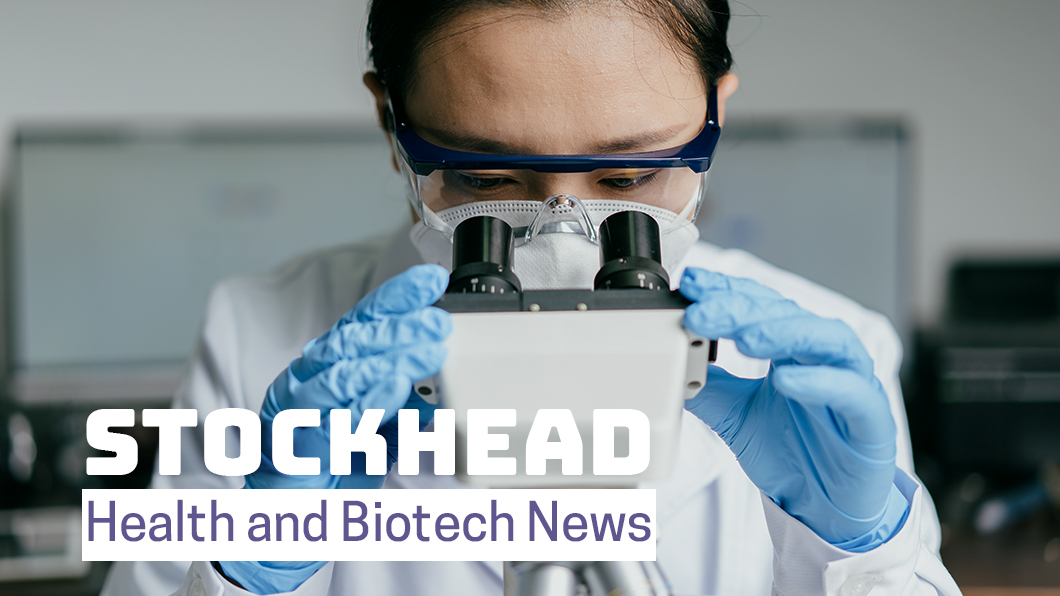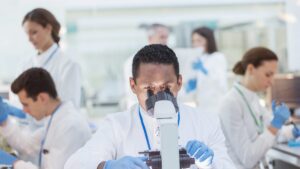Dr Boreham’s Crucible: Can Invitrocue eek out a piece of a $185m ‘humanised mice’ market?

Pic: sinology / Moment via Getty Images
When it comes to the latest sideline of the Singaporean “personalised oncology” outfit, we won’t hear a squeak of dissent from investors.
In a tie-up with a leading scientist from Singapore’s Agency for Science, Technology and Research (Astar), Invitrocue (ASX: IVQ) will supply “humanised” mice for clinical studies.
“Humanised mice” doesn’t mean you can have a decent convo with them about the footy or politics. Rather, they have been imbued with either a stable and functional human immune system or an immune-deficiency.
Research house Markets and Markets estimates the humanised mouse market will be worth $US129 million by 2022, growing at 10 per cent.
According to Invitrocue supremo Dr Steven Fang, these modified rodents are no common or garden vermin, and they sell for $US1000 apiece.
“We make a good margin out of it, too,” he says.
The venture will be 70 per cent owned by Invitrocue and 30 per cent by Astar’s Dr Chen Qingfeng.
But let’s not get too distracted by the rats and mice stuff as Invitrocue begins the commercial rollout of its core product – oncology (cancer) patient-derived organoids, or Onco-PDO, which tests oncology drugs for efficacy on a particular patient’s tumors.
The test is currently being rolled out in China, the Philippines, Singapore, Thailand, Malaysia, Vietnam, Indonesia, Germany, Spain, the UK and Austria.
Oh, and let’s not forget Australia and New Zealand.
The core premise behind Onco-PDO is that cancer drugs on average work 35 per cent of the time – and in some cases only five per cent of the time.
“Doctors might be happy with 35 per cent but if you ask a patient it’s not good betting odds,” Dr Fang says.
Indeed.
Invitrocue’s underlying philosophy is that while everyone has a unique genetic makeup, there’s a ‘one size fits all’ approach applied to standard drugs.
Some of these remedies have a miserable success rate, but can be more effective with particular patients.
Invitrocue’s evolution
Assisted by a joint research grant from the Massachusetts Institute of Technology, Invitrocue was spun out of Astar (the Singaporean equivalent of the CSIRO).
The company backdoor-listed on the ASX in January 2016, raising $3.15 million.
The company licensed its core know-how at an “attractive rate” from inventor and Invitrocue co-founder Prof Henry Yu.
“We are benefiting from about $40 million of investment so far,” Dr Fang says.
Initially, the company focused on testing liver cells and provided services to the big pharmaceutical companies. The founders then realised that oncology testing would be more exciting than providing liver testing services to the drug companies.
Dr Fang says cancer might be one the most common afflictions but it is also one of the most complex diseases to treat.
“There’s no magic bullet where one cancer drug or a cocktail of drugs can kill off these sub-classes of cancer cells,” Dr Fang says.
The trouble is, we don’t know enough about what drugs work and what ones don’t.
Testing times
Invitrocue’s Onco-PDO test derives from ‘oncology patient derived organoid’.
Yeah, we knew that.
The test is based on a portion of tissue removed during surgery or routine biopsy and then treated with the proposed cancer drugs.
Grown on scaffolds using a 3D culture, the cells in effect are an ‘avatar’ of the original tumor.
The test takes three days and on average assays 10 to 15 drugs from a panel of 80 therapies. Within two weeks, the oncologist receives the report.
An important legal distinction is that Invitrocue does not recommend a drug per se.
“Our role stops where the doctor’s role starts,” Dr Fang says. “We do not advise on the best drugs. We simply lay out what drug kills what per cent of the cancer cells and that’s it. The doctor needs to decide what to do with the information.”
Dr Fang says the test can ascertain with 100 per cent reliability that a drug won’t work, while being 96 per cent a drug does work.
The 100 per cent negative assurance is possible because the drug is tested at such a large dosage it would kill a patient if administered in-vivo.
Currently, the test can be used to assess treatments for head, neck and shoulder cancer, as well as breast, lung and colorectal cancers.
Under a recently formed alliance with the Shanghai Institute of Biochemistry and Cell Biology, Onco-PDO is relevant for 10 breast cancer types including oestrogen receptor positive (ER+), progesterone receptor positive (PR+), human epidermal growth factor receptor 2 positive (HER2+) and triple negative breast cancer (TNBC).
Next year the test should also be available for ovarian and prostate cancers, as well as neuroblastoma (brain cancer) and leukaemia.
Finances and performance
Invitrocue generated $S124,089 of revenue in the December 2018 half-year and also doubled its loss to $S3.5 million. The March quarter showed receipts of a modest $S128,000 and a $S1.2 million loss.
But with Onco-PDO sales only just beginning, these proceeds were from the old liver cancer test.
Unusually, Invitrocue sells the test for a flat 3,000 – as in 3,000 Euros for Germany, $S3,000 for Singapore and Asia and, of course 3,000 Aussie dollars here.
- Subscribe to our daily newsletter
- Join our small cap Facebook group
- Follow us on Facebook or Twitter
In reality, the end patient price is between $S4000 and $S6000, with the hospitals marking up the price to cover their costs.
“We don’t share revenue with them and we get to keep all our margins, which are hovering around 60 to 70 per cent,” Dr Fang says.
The company cites a current addressable market of 2.7 million “incidents” across Asia, Europe, Australia and New Zealand.
Under Invitrocue’s ‘capital light’ model, the company does not own the laboratories where the tests are carried out, but rents space and facilities from other parties.
Currently, the company avails facilities in Singapore, Shanghai and Munich.
With Invitrocue’s cash balance down to half a million or so by the end of the March quarter, we would expect the company to tap the market for more funds.
Since listing, the sparsely-traded Invitrocue shares have been as low as 5.5 cents (July 2016 and April 2019) and as high as 11 cents (March 2016 and March and July 2018).
Dr Boreham’s diagnosis:
There’s no question of demand for Onco-PDO at a macro level, with 15 million new cancer cases a year and this number is expected to double by 2040.
While there’s a US start-up and a Dutch hospital dabbling in the onco-drug testing game, Invitrocue appears to have the territory to itself.
A key selling point for Onco-PDO is the test’s ability to test for 10 different types of breast cancer.
“Any company that can provide information to help doctors decide the right drug for the right patient at the right time is going to be a huge market,” Dr Fang says.
Of course, Invitrocue needs to prove it can capture a meaningful share of this market.
If it can’t, there’s always the mice to fall back on… but you need to catch the buggers first.
Disclosure: Dr Boreham is not a qualified medical practitioner and does not possess a doctorate of any sort. As a kid he had pet mice and then a pet cat, after which he no longer had pet mice.
This column first appeared in Biotech Daily.
The content of this article was not selected, modified or otherwise controlled by Stockhead. Stockhead has not provided, endorsed or otherwise assumed responsibility for any financial product advice contained in this article.
UNLOCK INSIGHTS
Discover the untold stories of emerging ASX stocks.
Daily news and expert analysis, it's free to subscribe.
By proceeding, you confirm you understand that we handle personal information in accordance with our Privacy Policy.








